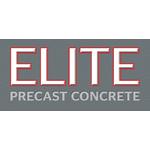New regulations needed to stop unsafe concrete practices
By Owen Batham – Sales and Marketing Director, Elite Precast Concrete
Using recycled waste within interlocking concrete blocks often presents a cost saving to the manufacturer – and could be argued as being more environmentally-friendly.
But there is an increasing problem with blocks being produced which don’t meet the high strength and durability standards required if the products are going to stand the test of time and be as safe as possible.
This is because often there are unknown or hazardous materials contained within: rather than being safely disposed, waste is encapsulated into blocks, meaning it is no longer considered waste and does not require a transfer note.
When they are then sold, the customer ultimately has no idea what is contained within the blocks – or whether they meet the regulations surrounding concrete in the UK. This is a cost concern as they may need replacing sooner than would be expected if they crumble, but more importantly is also a real safety concern and could even pose a risk to lives should a collapse occur.
While there are guidelines about expected strength and durability, and companies are expected to test their materials, they are not legally enforceable which means there are no specific repercussions for manufacturers who are not testing and may be using dubious or hazardous materials in their blocks.
There are thousands of these blocks (containing unknown recycled or hazardous materials) currently being used in the UK – and there is no tracing system which would enable them to be identified. That’s why both manufacturers and customers need to be educated about the dangers of these unsafe practices. And to enable that education to be as effective as possible, more research needs to be undertaken to determine the exact risks of weaker or hazardous recycled materials being used within construction.
But most importantly of all, standards need to be elevated within the industry. This means more stringently enforced regulations which specifically tackle the issue of recycled aggregates. Knowing there will be repercussions if potentially unsafe blocks are sold will not get rid of the blocks which are already in use, but it may stop this practice increasing in the future. Set regulation alongside better education also means that customers will be able to make informed choices about the blocks they use.
More information and research can be found in the independently-written ‘Recycled waste and the UK precast concrete industry’ white paper which originated from our concerns about the impact of these unscrupulous practices: http://bit.ly/elitewhitepaper.


